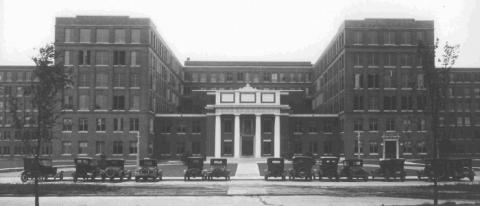Warren Poppino Spencer (1898-1969) was an American geneticist who studied low-dosage radiation as part of the Manhattan Project at the University of Rochester.
Early Life
Born in New Athens, Ohio, Spencer received his B.A. from The College of Wooster, and his M.S. and Ph.D. from The Ohio State University. Spencer joined the faculty of The College of Wooster in 1921. His research was in drosophila genetics, studying fruit flies to learn about the principles of heredity.
Scientific Contributions
From 1943 until 1945, Spencer worked at the University of Rochester on contract for the Manhattan Project. Spencer and his colleagues studied the mutation rates caused by low-dosage radiation. It was commonly believed at that time that the frequency of induced mutations increased linearly with the intensity of radiation, but data for low levels of radiation was inconclusive. These studies were important for determining radiation limits for workers handling radioactive materials. They found that the linear relationship continued at low doses, which meant that there was no “tolerance dose,” or an amount of radiation below which mutations are not induced. This question is still debated today, but experiments such as Spencer’s helped mark a shift in thinking about radiation safety.
Later Years
After the war, Spencer returned to The College of Wooster. In 1949, he received the Joseph Leidy Award from the Philadelphia Academy of Natural Sciences for his “notable studies of wild populations of the fruit fly and other contributions to genetics and zoology.” Over the course of his career, he helped mentor a number of students and published many papers on fruit fly genetics. He died on May 9, 1969, at the age of 71.





